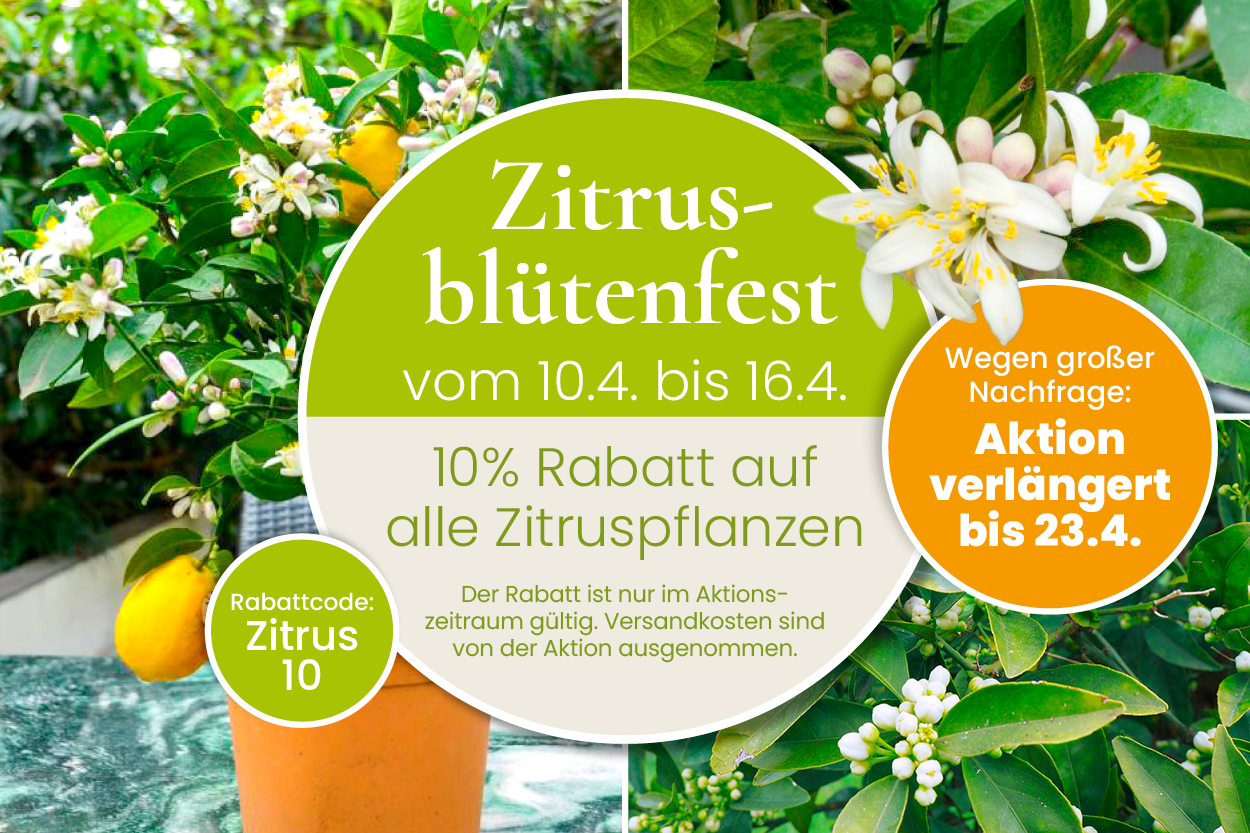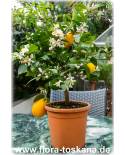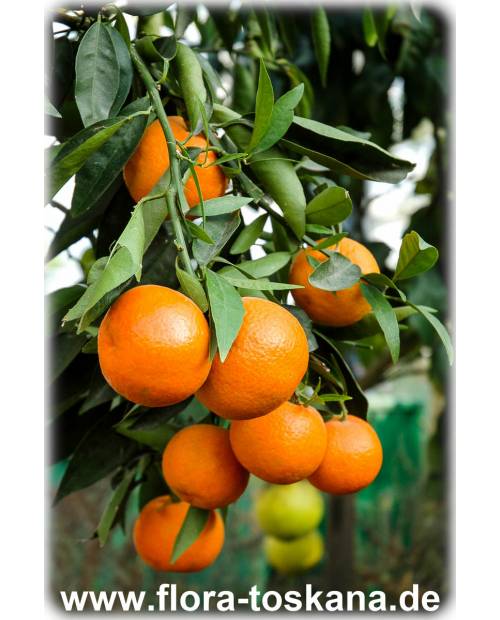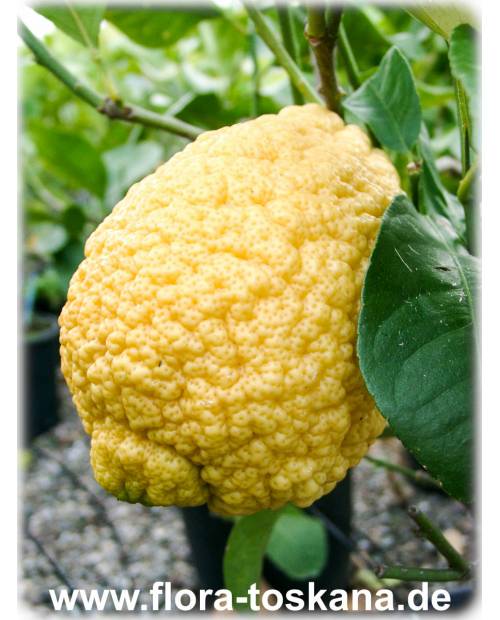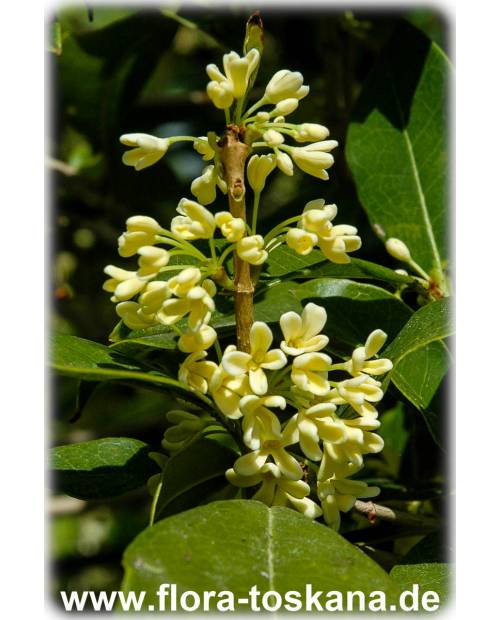Citrus x meyeri - Meyer's Lemon Tree
The skin of the Meyer's lemon (Citrus x meyeri) is more strongly colored than that of other lemons, often even orange. Its flavor is milder and very popular among top chefs!
This probably natural hybrid of lemon (Citrus limon) and orange (Citrus sinensis) got its name from the American explorer Frank N. Meyer (1908). It is listed as a species (Citrus x meyeri) or, less common, as a cultivar (Citrus limon ‘Meyeri’). Compared to other lemon cultivars, its growth is very compact, its maximum size and leaves smaller. The flower buds have a red-purple tinge and are clustered in dense groups. They unfold their 3-4 cm large, white, fragrant flowers during the whole growing season, but mainly in spring and late summer months. The fruits are distinctly round, smaller than those of ‘Lunario’ for example, and their skins are bright yellow to orange. The aroma of the yellow, juicy flesh is mildly acidic, and many top chefs prefer it to the dominant aroma of ‘Lunario’. Probably for this reason, many restaurants and hotels order the historic but still little known Meyer’s lemon tree. Note: although in common literature it is often written that Meyer’s lemon tree tolerates even longer periods of frost we – from our own experience – cannot agree and recommend that you bring it indoors for overwintering.
![]() Quality: intense fragrant & large flowers; purple flower buds; flowering and harvesting throughout the year, edible & and decorative fruits; evergreen & glossy & fragrant leaves
Quality: intense fragrant & large flowers; purple flower buds; flowering and harvesting throughout the year, edible & and decorative fruits; evergreen & glossy & fragrant leaves
![]() Use: in pots from April/May outside on balcony, terrace and in the garden – during winter in a winter quarter or conservatory; all year round in a heated greenhouse or bright room
Use: in pots from April/May outside on balcony, terrace and in the garden – during winter in a winter quarter or conservatory; all year round in a heated greenhouse or bright room
![]() Note: All Flora Toskana citrus varieties are GRAFTED. Advantages: Flowering and fruiting from the smallest size (harvest in the first year). Robust roots that forgive care mistakes and ensure longevity. Varietal identity with the highest fruit quality and quantity
Note: All Flora Toskana citrus varieties are GRAFTED. Advantages: Flowering and fruiting from the smallest size (harvest in the first year). Robust roots that forgive care mistakes and ensure longevity. Varietal identity with the highest fruit quality and quantity
Data sheet
- Family
- Rutaceae
- Origin
- Asia (mediterranean)
- Flowering period
- Blooming several times
- Color of flowers
- White
- Fruits
- Edible fruits
- Fragrance
- Fragrant flowers
- Growth
- Tree or shrub
- Location
- Sunny
- winter temperature
- 8 (±5)°C
- Minimum temperature
- 0 °C
- Hardiness Zones
- 9
- Height
- 1,5 - 2 m
You might also like
Customers who bought this product also bought:
